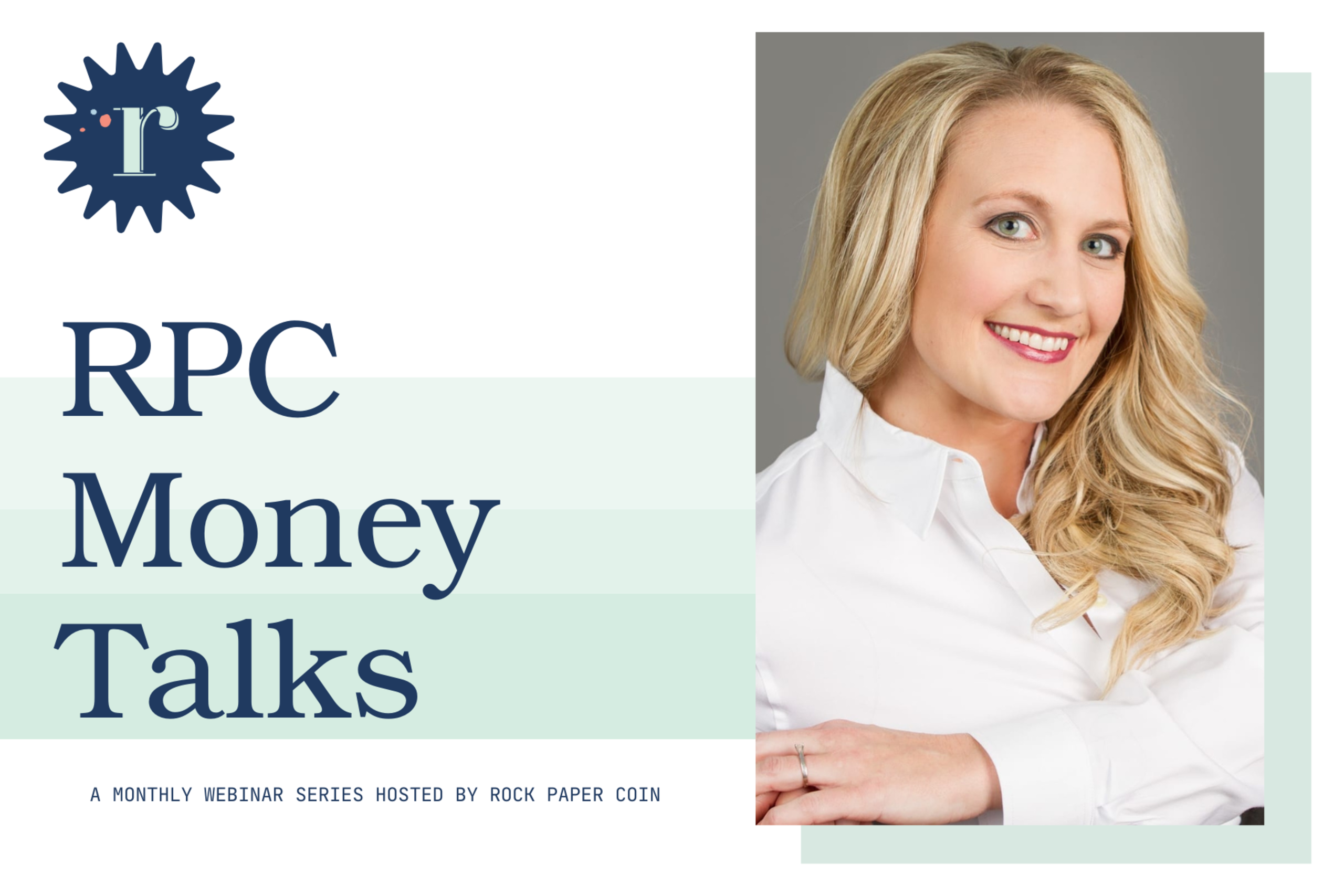We try to keep things light and fun around here at Rock Paper Coin (it is a much better way to live and build a culture), but the reality is running a business is hard. And while most of what you’ll see from us is celebratory, we’d be doing you a disservice if we skipped over the difficult topics. Because cheerleading you through the good times and supporting you through the bad is what we’re here for.
As we write this piece, there is a lot of debate about whether or not we’ll enter a formal recession. And that are-we-aren’t-we conversation doesn’t do anything other than stress people out. But, here’s the thing—recessions happen. And as someone running a wedding or creative business, you also know that slow seasons do too. Today, then, we’re going to have a serious conversation about what you need to do as the CEO of your business to make sure it can weather any downturn or slump. Read on for our business advice to help you prep your business for a recession or slow season.
Be good about saving when business is booming
We’ll start with the basic good business habit: save money when your business is doing well. We’re sure you don’t need the reminder of why good financial practices are important, but it’s worth repeating—it’s incredibly important to save during good times so that you have a cushion during bad ones.
Now, we’re not saying save to the extent you feel like you’re depriving yourself of something—you can still enjoy the good times while also making sure you are saving some money. This could mean setting aside 5%, 10%, or 20% of your revenue and putting it into a savings account where you won’t touch it unless absolutely necessary. This is on top of what you should be saving for the long-term investments you might want to make in your business—like hiring staff, investing in marketing, or creating new products—as well as for retirement.
Pro-tip: Speaking of not working for the rest of your life, we broke down our tips to help you save for retirement with a SEP IRA.
Work to pay off business debt before things get slow
Many businesses have some sort of debt: credit card, accounts payable, etc. And this debt can start to feel bigger than it is when a recession or slow season hits. So, if you can start paying off debt before things slow down, it’ll be a huge help in navigating the slower times.
If you can’t get close to paying off your balances, you can also look into refinancing or consolidating your debt, which may help reduce the interest rate and extend the repayment period so that monthly payments are lower. Just be sure to read all of the fine print and understand the terms before signing anything.
Pro-tip: Paying off debt can seem daunting but there are plenty of strategies that you can use to help make it less overwhelming. We recommend reaching out to or consulting with a financial advisor to help you make one for yourself.
Try to run a lean business
One of the other good habits that helps you prepare your business for a recession is always trying to run a lean business. What do we mean by that? Really, just that you’re not spending money and resources on things that aren’t essential to your business. Extravagance is great every once in a while (hello an awesome team-building day!), but in the long run, it’s just not sustainable. So, take stock of what you’re spending and decide where you could cut back on expenses or invest more wisely. For instance, are there any services that you’re paying for that you don’t necessarily need? Or could you be outsourcing some of your tasks to freelancers instead of hiring someone full-time?
Running a lean business also means that you’re paying attention to what it is that’s actually making money for you. Are there any products or services that are underperforming? If so, drop them and focus on the ones that have a high return on your investments.
Pro-tip: Curious about whether you’re spending money in places you shouldn’t and maybe overlooked places you should? This piece is an overview of the cost of doing business, and our friend and tax lawyer, Braden Drake, shared some tips too!
Adjust your business goals and expectations
To help on the emotional side of getting your business to the other side of a slow season, we have to talk about setting expectations. Because stress often stems from them being out of alignment with what’s really possible. So, if you find that your business is slowing down (for whatever reason) and you’re feeling overwhelmed—we encourage you to take a step back and reset your expectations for what’s possible. That could mean reducing the number of projects you take on in order to focus more deeply on the ones with higher returns. Or, it may mean trying out some new methods of marketing that help your business reach more potential customers. Whatever it is, just make sure you adjust those goals and expectations to match what’s actually possible for where your business is at the moment.
At the end of the day, it’s important to remember that recessions come and go, but you should stay focused on long-term sustainability. And by preparing for a recession before it hits, you can make sure you come out ahead when things start to pick up again.
What can you do to be productive when business is slow? This oldie but goodie from the slow season that was forced on us all might help get the wheels turning. Here are 10 things you can do when business is slow.



